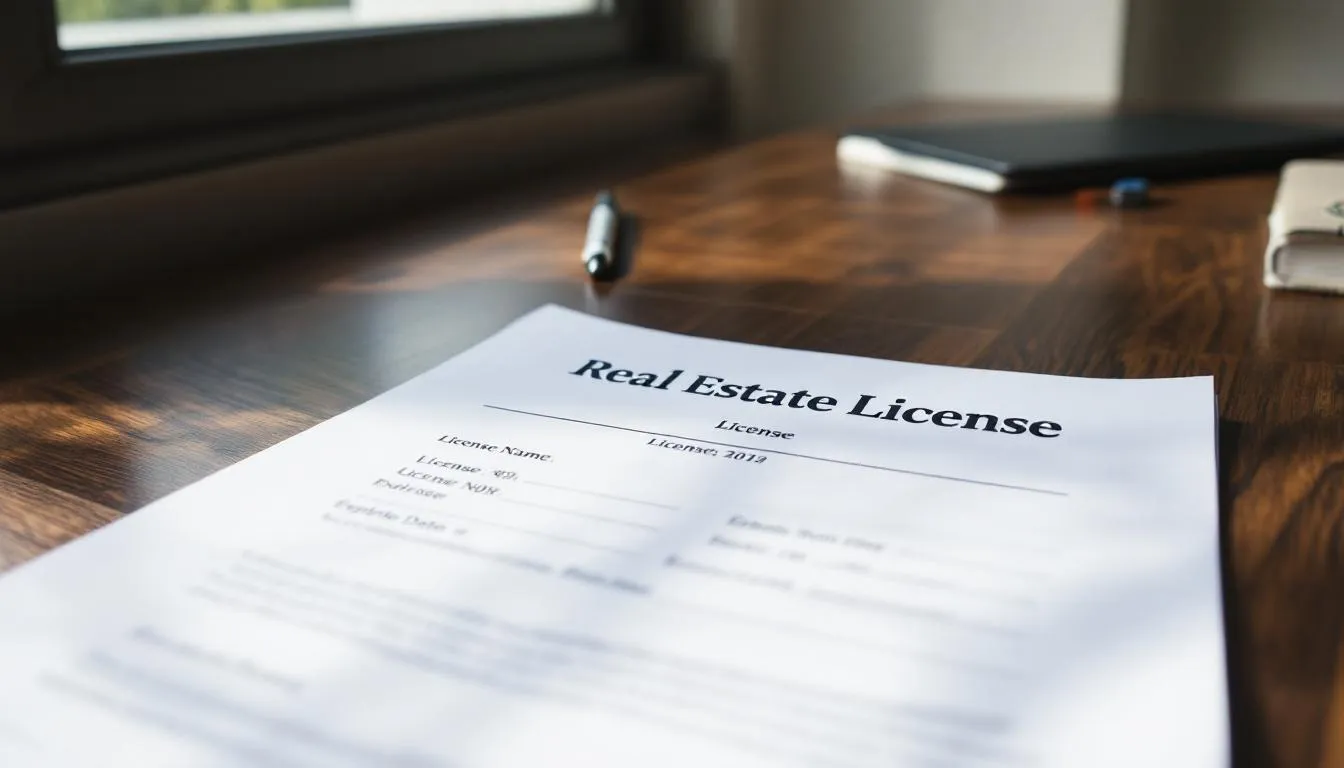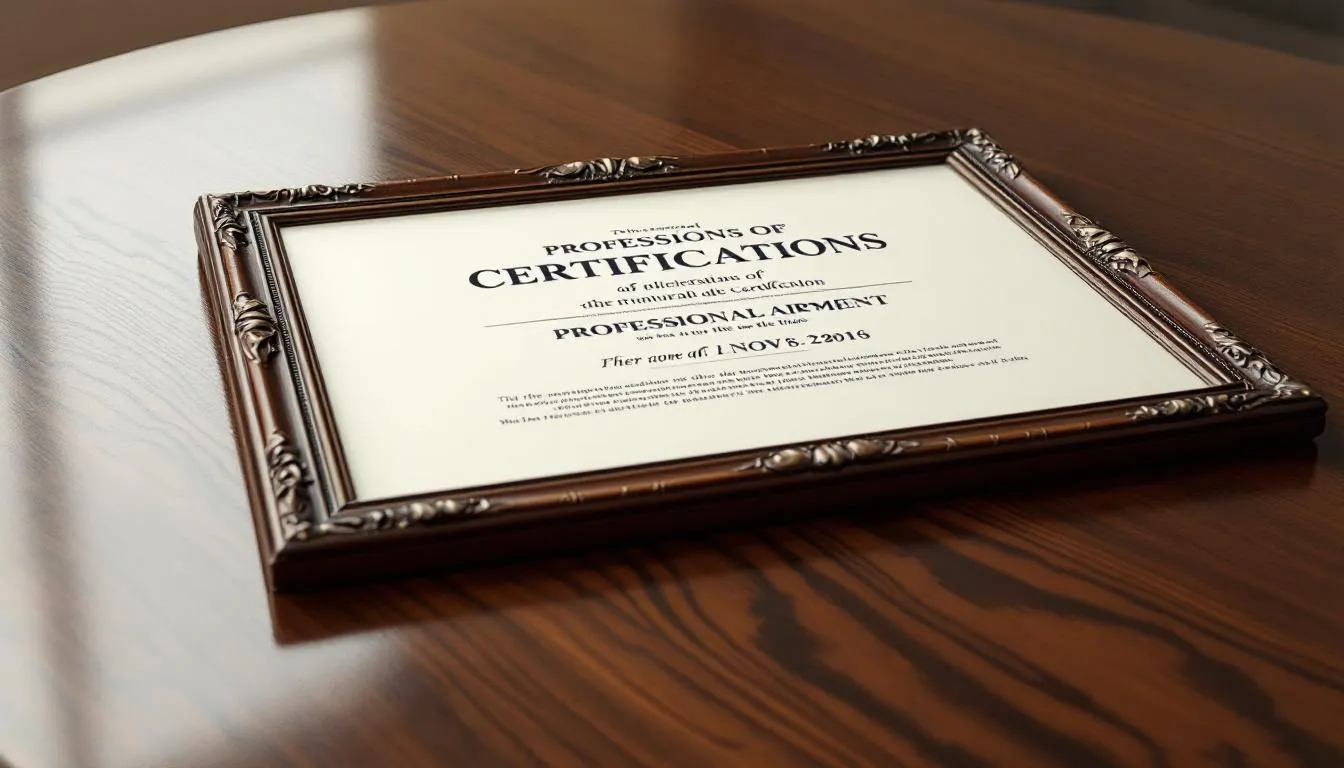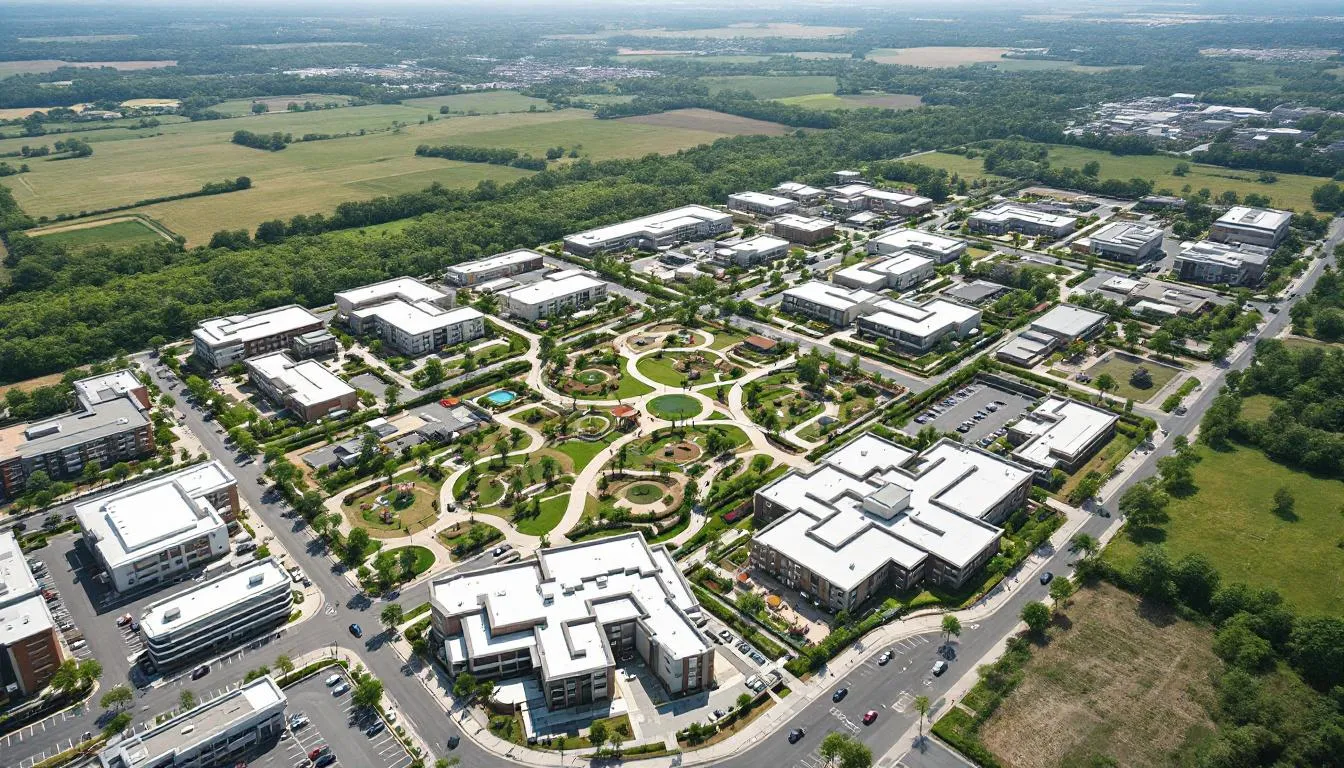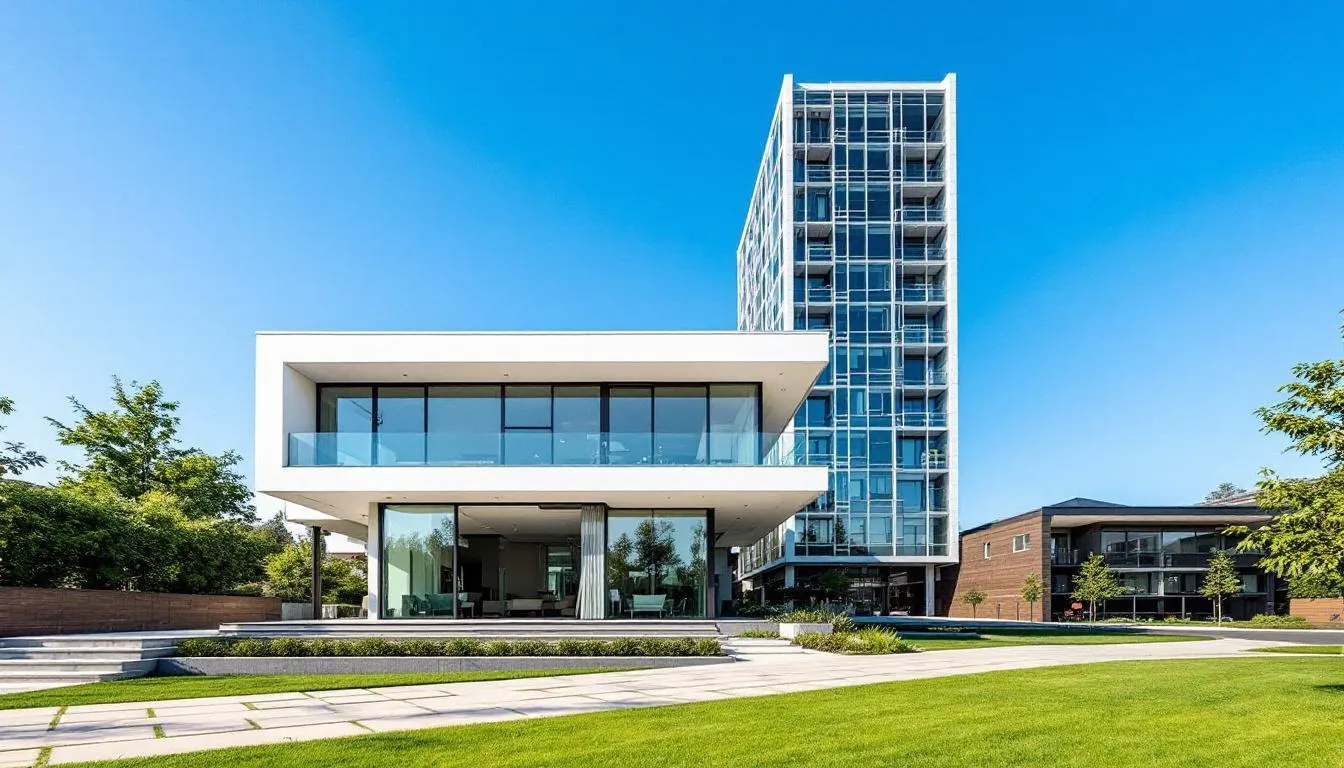- 🏢 The commercial real estate license is the same as a residential license—specialization happens after licensing.
- 💰 Most commercial real estate agents earn between $100,000 to $149,000 per year, with some top earners making millions.
- 🌆 Las Vegas is seeing increased demand for commercial property, especially in hospitality, logistics, and retail.
- 📊 Skills like financial analysis, negotiation, and market research are crucial for success in the commercial sector.
- 📈 Certifications like CCIM and SIOR can significantly increase credibility and earning potential.

Commercial Real Estate License: Is It Worth It?
The commercial real estate industry offers a strong chance for professionals who want a high-income career. This work involves long-term client relationships and complex, rewarding deals. But many future agents wonder if getting a commercial real estate license is worth it. Knowing what a "commercial real estate license" means—and how to become a commercial real estate agent—can help you decide about your career.

What is a Commercial Real Estate License?
Many people entering commercial real estate think a special license exists for it. But that's not true: there is no separate commercial real estate license. All real estate professionals, whether they work with homes or businesses, must first get a standard real estate license from their state.
After getting this license, you can specialize in commercial real estate. You do this through mentorship, experience, education, and professional titles. This makes your career very specialized and can bring in a lot of money. Commercial real estate agents work with properties used for business. These include office buildings, retail centers, hospitality projects, manufacturing places, and apartment buildings with five or more units.
At its core, doing well in commercial real estate means finding your specific area, building industry knowledge, and growing your connections in the business world. It does not mean getting a different license.

How to Become a Commercial Real Estate Agent: The Licensing Process
To become a commercial real estate agent, you must first get a real estate license in your state. The steps are mostly the same across the U.S., but some requirements might be a little different.
1. Meet State Eligibility Requirements
Each state mandates general eligibility requirements including:
- Being at least 18 or 19 years old, depending on the jurisdiction.
- Holding a high school diploma or GED.
- Completing a background check and fingerprinting process.
2. Complete Pre-Licensing Education
You must take a pre-licensing course from a state-approved school. These courses usually last 60 to 150 hours. They cover many basic topics like contracts, property ownership laws, agency relationships, finance, closing rules, tenant and landlord laws, and ethics.
Most states let you take courses online or in person. Online learning is helpful for people who work and want to change careers without quitting their current job.
3. Pass the State License Exam
After you finish your education, you must pass your real estate license exam. It has two parts:
- A national part that covers general real estate rules.
- A state-specific part that deals with laws and practices for your state.
Most exams are multiple-choice and done on a computer by outside companies. You should schedule your exam soon after finishing your course. This helps you remember the material well.
4. Apply for Your Real Estate License
After you pass the exam, you can apply for your real estate license. You will need to send in official papers like:
- Proof you finished the course.
- Your passing exam scores.
- Background check approval.
- The license application and fees.
Your license might take a few days to a few weeks to get to you. This depends on how long your state takes to process it.
5. Join a Commercial-Focused Brokerage
This is when you start to specialize. To become a commercial real estate agent, join a brokerage that does commercial deals. Look for brokerages that:
- Work specifically with office, retail, industrial, investment, or apartment building deals.
- Give good guidance from experienced commercial brokers.
- Have their own tools like market data, CRM systems, and leads.
- Work in busy commercial areas, such as Las Vegas, Atlanta, or Houston.
6. Work Toward Your Broker’s License
You do not need a broker's license right away. But many commercial professionals plan to become brokers later. A broker license lets you:
- Start your own brokerage company.
- Manage other agents.
- Get a bigger share of commissions.
- Have more control over your business.
Most states need more experience (usually two to three years), more classes, and another exam to become a broker.

The Financial Advantage: How Much Can Commercial Real Estate Agents Earn?
Commercial real estate offers big money rewards. A 2024 report from Colibri Real Estate says most commercial real estate agents make $100,000 to $149,000 each year. But some very successful agents make millions of dollars a year.
Residential agents do many small deals. Commercial real estate professionals often do fewer deals, but each deal can bring a much higher commission.
“Some commercial deals can range from hundreds of thousands to millions of dollars,” according to recent data.
This means agents can do fewer deals and still make six- or seven-figure incomes.
Things that affect how much money you can make:
- What kind of commercial property you work with (retail, industrial, apartment buildings, etc.).
- Conditions in your local market.
- Your experience and how people see your work.
- Your specific area of focus.
- How strong your connections and client list are.

Why Las Vegas Is an Ideal Market
Las Vegas is still one of the best markets for commercial real estate agents. It was always known for hotels and entertainment. But the city has branched out in recent years. This has led to high demand for many types of commercial property.
A 2024 report from the National Association of Realtors (NAR) says Las Vegas's commercial real estate is getting better because of:
- More people moving there.
- Growing tourism money.
- More warehouses and logistics systems.
- More new buildings and mixed-use projects.
This makes it a good place for new commercial agents who want to build a lasting, valuable client list.
Agents like Steve Hawks have used deep local knowledge and focused on areas like mixed-use and hospitality. This helped them succeed greatly in their markets and become top performers.

Core Skills Every Commercial Real Estate Agent Needs
Commercial real estate needs different skills than residential real estate. Home buying often involves feelings. But commercial deals rely a lot on facts, return on investment, and careful risk assessment. So, you need different skills:
Understanding Finances
You will need to look at:
- Net operating income (NOI)
- Capitalization rates (cap rates)
- Internal rate of return (IRR)
- Return on investment (ROI)
- Lease length and how rent increases
Good Negotiation Skills
Commercial leases and purchases are very structured. They often involve talks between many groups:
- Tenants
- Property owners
- Lawyers
- Property managers
You must be able to create deals that work for everyone, even if talks take many months.
Market Research and Analysis
You need to understand big and small market facts, zoning updates, new building plans, and economic signs. This knowledge will be key to convincing investors and others involved.
Business Development
Much of your value lies in your network and referral base. You'll need to build relationships not just with clients, but also with bankers, architects, inspectors, and attorneys.

Certifications That Add Value
You do not need certifications, but they greatly improve what you know. They can also help you earn more money.
CCIM (Certified Commercial Investment Member): This title is known across the industry. It shows you are good at analyzing investments and making financial models.
More info hereSIOR (Society of Industrial and Office Realtors): This is good for people who work with industrial or office clients. Members often say they do more deals than non-members.
CRE Designation: This is given to real estate experts known for their work in giving advice.
CE course packs: Many states and learning websites have CE courses that help you improve your commercial knowledge over time.
Certifications make you stand out. They also give you special access to data, broker groups, and top referral sources.

Building a Reputation in Commercial Real Estate
In commercial real estate, how people see you is very important.
Find a Mentor
Find a team or brokerage where you can learn by doing. Top agents often let newer people watch them work on deals. This can help you learn much faster.
Make Good Connections
Work closely with:
- Commercial loan officers
- Title companies
- Zoning lawyers
- Developers
- Appraisers
When you make these connections, you become the person people go to for many services, not just buying and selling.
Join Associations
Join groups like:
- National Association of Realtors – Commercial Division
- Local CCIM groups
- Urban Land Institute (ULI)
- ICSC for retail professionals
These groups teach you things. They also give you access to commercial leads from all over the country and your area.

Choosing Your Commercial Real Estate Niche
The commercial real estate agents who do best specialize. Here are some good areas to focus on:
- Office: Business space, shared offices, and long-term leases.
- Retail: Strip malls, big stores, and places with many shoppers.
- Industrial/Warehouse: Popular in e-commerce areas like Las Vegas.
- Hospitality: Hotels and resorts in growing tourist spots.
- Healthcare: Doctor's offices, urgent care clinics, and senior living.
- Apartment Building Investments: Giving advice on buying, fixing up, or changing apartment buildings.
When you specialize, you become known as an expert in that area. This helps you get more deals and build client trust.

Common Challenges and How to Overcome Them
Challenge: Long Sales Cycles
Unlike residential, commercial deals can take 3 to 12 months. Financial projections, leases, zoning checks—all take time.
- Solution: Plan financially for long periods between deals.
Challenge: Complex Legal Papers
Commercial contracts can have many legal rules.
- Solution: Take more classes or work with a real estate lawyer.
Challenge: Starting Out as a New Agent
Clients might not want to hire agents who lack experience.
- Solution: Give detailed market reports, work with a team leader, or co-broker to get experience.
Use tools like CoStar, Crexi, and LoopNet to do research. This helps you show yourself as a top professional.

How Your Personal Brand Helps
In commercial real estate, how people see you means everything. It is important to build your reputation online.
- Make a Personal Website: Include your past work, blog posts, client successes, and contact details.
- Use LinkedIn & YouTube: Share weekly market information, commercial real estate news, and teaching videos.
- SEO Focus: Make your site easy to find with words like “commercial real estate agent Las Vegas” or “Nevada commercial properties for lease.”
- Email Marketing: Send monthly newsletters with listings, market trends, and tips. This builds good, lasting relationships.
Always showing a strong online brand makes you the expert in your market.

What to Do in Your First Year in Commercial Real Estate
It is important to think long-term. Here is what to focus on:
- Get your license and pick a brokerage that does commercial deals.
- Keep learning through mentors, CE courses, and certifications.
- Choose an area to specialize in and become very good at it.
- Start making client connections and getting referrals.
- Build a professional image both online and offline.
- Do not expect fast money. Focus on deals that will pay off over time.
| Category | Residential | Commercial |
|---|---|---|
| Sales Cycle | Fast (few weeks) | Slow (months to over a year) |
| Money Per Deal | Lower | Much Higher |
| Skills Needed | People skills & Sales | Analysis, Negotiation, Investment Know-how |
| Buyer Reasons | Feelings (home, family) | Money (ROI, can grow) |
| Daily Work | Responds to things, many deals | Plans ahead, thoughtful |
| How Relationships | Deal-focused | Based on connections |
You might get faster successes in residential real estate. But commercial real estate can help you build much more wealth over time. This is true if you put in the needed time and effort.

Residential vs Commercial: Which Is for You?
Citations
- Colibri Real Estate. (2024). Commercial real estate professionals typically earn between $100,000 and $149,000 annually.
- Colibri Real Estate. (2024). Commercial deals can range from hundreds of thousands to millions of dollars.
- National Association of Realtors. (2024). Commercial Real Estate Outlook: Metropolitan Markets Showing Resilience.
- CCIM Institute. (2024). Certified Commercial Investment Member (CCIM) Designation Overview.

